What Are the Legal Restrictions on Buying Cannabis Seeds?
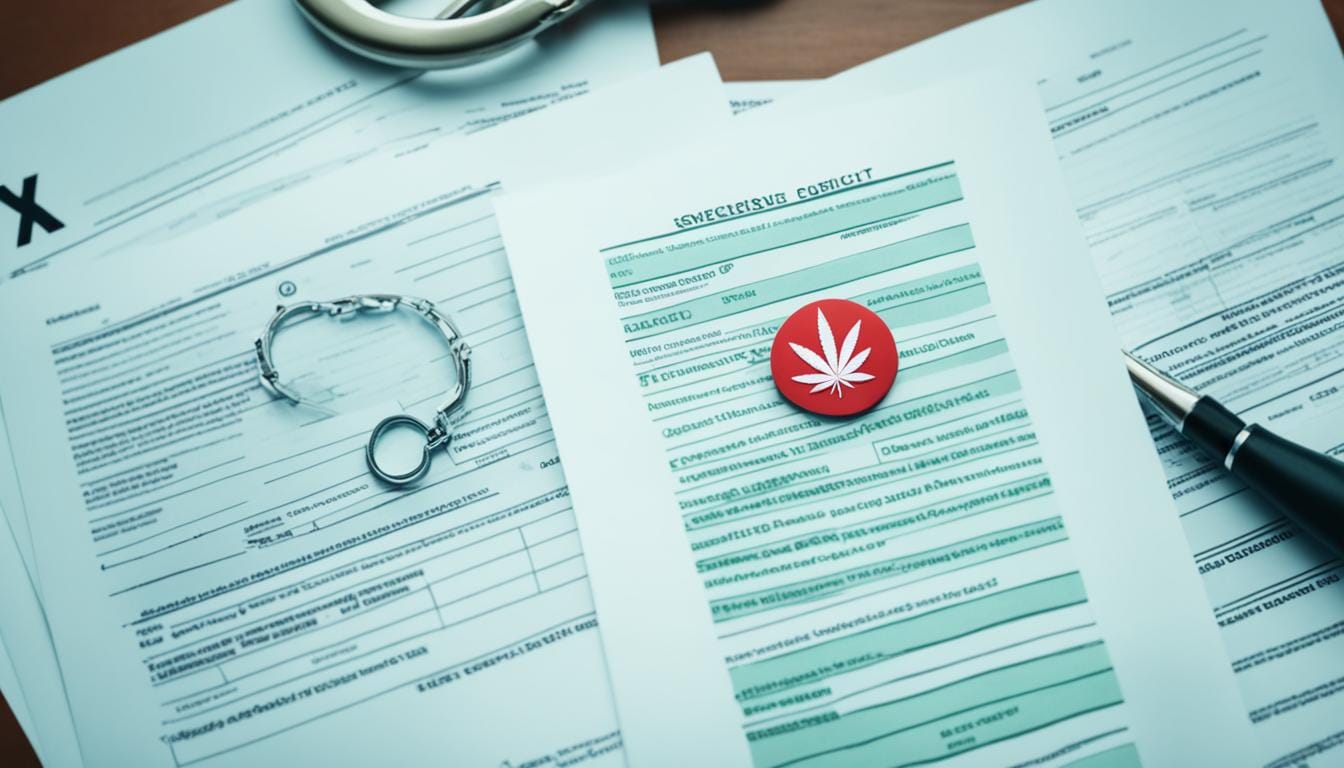
Imagine you’re an enthusiastic gardener eager to grow your own cannabis. You’ve researched the best strains, prepared your growing space, and are ready to make your first seed purchase. But before you hit the “buy” button, a wave of questions floods your mind: Is this even legal? Can I order seeds from another country? What if my state has different laws than the federal government? These are not just hypothetical concerns; navigating the legal minefield of cannabis seed purchasing requires a thorough understanding of the laws and regulations in your region.
This article will unravel the complexities of buying cannabis seeds, providing clarity on international, federal, and state laws. Whether you’re a seasoned cultivator or a curious novice, knowing the legal restrictions is the first step towards a successful and lawful growing experience. Join us as we explore the intricate and often perplexing world of cannabis seed legality.
Understanding Cannabis Cultivation Laws in Your State
Starting your cannabis growing journey means knowing your state’s unique cannabis cultivation laws. These laws change often, so it’s important for growers to stay up to date to avoid potential consequences.
Many states have strict rules about who can grow cannabis, how much they can grow, and where. Knowing these rules is key to following the law and helping the legal cannabis movement grow. Here are key considerations regarding cannabis cultivation laws:
- Licensing requirements for cannabis cultivation
- Permitted quantities for personal use versus commercial operations
- Zoning laws for growing cannabis
- Security measures and reporting obligations
- Legislation updates and state-specific provisions
Next, let’s look at a table showing how cultivation laws differ by state. This shows why it’s important to know your state’s specific guidelines.
| State | Permitted Quantity for Personal Use | Commercial Cultivation Licensing Available | Additional Restrictions |
|---|---|---|---|
| California | Up to 6 plants | Yes | Must be 21+, restrictions on public visibility |
| Colorado | Up to 6 plants, 3 flowering at a time | Yes | Must be 21+, plants must be grown in enclosed, locked space |
| Oregon | Up to 4 plants | Yes | Must be 21+, limits on extraction processes |
| Michigan | Up to 12 plants | Yes | Must be 21+, restrictions on plant visibility and proximity to schools |
Note that we are not lawyers, and the laws detailed in this article may have changed since its publication. Therefore, getting advice from a legal expert is a must. This ensures you fully comply with state laws and cultivation regulations.
Navigating Federal and State Cannabis Legislation
Understanding federal cannabis legislation and state cannabis legislation is vital for those in the cannabis industry. With constant changes and contradictions at different government levels, staying updated is essential. The 2018 Farm Bill and the DEA’s stance on THC levels play a key role in the industry.
Contradictions Between State Laws and Federal Restrictions
The conflict between state cannabis legislation and federal cannabis legislation poses legal challenges. As states increasingly legalize cannabis in various forms, the federal government still sees marijuana as a highly restricted substance. This contrast affects banking, law enforcement, and the market’s stability.
The Impact of the 2018 Farm Bill on Cannabis Seeds Legality
The 2018 Farm Bill marked a big step for hemp in federal cannabis policy. It separates hemp, with under 0.3 percent THC, from marijuana, allowing hemp cultivation and product sale and possession. Yet, the bill’s complexities require careful interpretation, especially where state laws differ.
DEA’s Stance on Cannabis Seeds With THC Limits
The DEA’s stance on cannabis seeds focuses on THC levels. Seeds with less than 0.3 percent THC fit the 2018 Farm Bill’s hemp definition and are legal. However, the DEA still watches and enforces rules on products above this limit, requiring attention to THC content.
| Aspect | State Cannabis Legislation | Federal Cannabis Legislation |
|---|---|---|
| Cannabis Seed Legality | Varies by state; some allow cultivation and use | Hemp derivatives with <0.3% THC are legal under the 2018 Farm Bill |
| DEA Stance | State-enforced compliance with state laws | Enforcement of the Controlled Substances Act; monitoring seeds above THC threshold |
| Contradictions | Policies towards cannabis are increasingly permissive | Schedule I substance classification remains at the federal level |
With ongoing contradictions between federal and state laws, it’s crucial for industry members to stay informed. Seeking up-to-date information and legal guidance is necessary to avoid problems and stay within the law.
State-Specific Guidelines for Buying Cannabis Seeds
When you think about buying cannabis seeds, it’s key to know your state’s laws. Every state has its own state regulations for buying and selling marijuana seeds. These rules can be very different across states. You might face limits on how many seeds you can buy, what kinds of seeds you can have, and who can buy them.
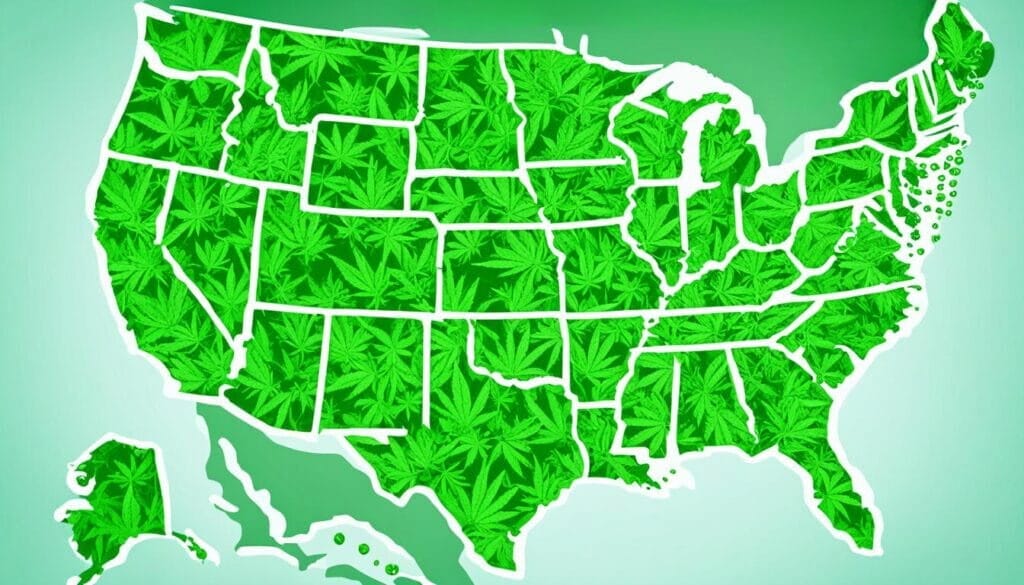
In some states, you can buy seeds as collectibles but can’t grow them without a license. Meanwhile, other states let you grow a certain number of plants for your own use. Knowing your state’s rules is vital to staying out of trouble.
Here are the basics buyers need to understand:
- Find out if your state allows growing cannabis for medical use, recreational use, or both.
- Look into rules about selling or moving seeds within and between states.
- Learn how many seeds you’re allowed to buy at one time.
- Remember, even if buying seeds is okay in your state, growing them might not be.
Buying cannabis seeds legally means doing some homework or talking to a legal expert. Here’s a simple guide to state rules:
| State | Legal for Recreational Use | Legal for Medical Use | Purchase Limit |
|---|---|---|---|
| California | Yes | Yes | No limit on seeds, up to 6 plants for cultivation |
| Colorado | Yes | Yes | Up to 6 plants, only 3 in bloom at once |
| Massachusetts | Yes | Yes | No limit on seeds, up to 6 plants for growing |
These state-specific guidelines change often, so it’s your responsibility to keep up with the laws regarding the purchase of cannabis seeds in your area. For more details, reach out to local shops, lawyers, or government offices. Being informed can help avoid legal troubles in this changing market.
Commercial Cannabis Cultivation Licensing Requirements
Getting into commercial cannabis cultivation means understanding many local and federal laws. You’ll need to meet several licensing requirements, including strict compliance standards. It’s crucial to understand this complex process and the role of legal advice in building a strong business.
Application Processes and the Significance of Compliance
The path to becoming a cannabis entrepreneur varies by location. Completing the application process requires focus and dedication. Each state and sometimes local areas have their own set of rules.
| Stage of Application | Details Required | Significance in Compliance |
|---|---|---|
| Pre-Application | Gathering financial records, business plans, and proposed operation details. | Ensuring preparedness and financial stability. |
| Submission | Complete application forms, background checks, and security plans. | Adherence to state and local regulatory frameworks. |
| Review Process | Interaction with regulatory authorities, adjustments based on feedback. | Responsiveness to regulations, flexibility to meet compliance. |
| Approval and Licensing | Issuance of license, commencement of operations under guidance. | Continuous compliance ensures sustained operations. |
Compliance is more than a legal must-do. It builds trust with officials and the community. This trust reflects a commitment to safety, high standards, and ethical work.
Seeking Legal Advice for Cannabis Business Operations
Expert legal advice is a big help. Attorneys who know cannabis laws can navigate through tricky rules. They help your business run smoothly and stay ahead legally.
- Guidance on the latest laws and regulatory changes impacting commercial cannabis cultivation.
- Assistance in drafting and reviewing application materials to meet rigorous licensing requirements.
- Strategies to ensure ongoing compliance with changing regulations.
- Legal protection and representation in the event of discrepancies or disputes.
Running a cannabis business means being multi-skilled. Paying attention to licensing, compliance, and getting legal advice puts you ahead. It’s not just about getting by, but thriving in the growing cannabis market.
Alternative Uses of Cannabis Seeds
While cannabis seeds are not just for growing marijuana, they have many other benefits. They’re packed with nutrition and make great bird food. They give birds essential fats and proteins. Anglers might use cannabis seeds as fish bait. This is a natural and effective choice. The ability to buy cannabis seeds legally allows for these alternative uses.
As bird food or fish bait, cannabis seeds usually don’t face strict laws like when they’re bought for growing; However, users must check local laws before buying seeds for any use. It’s vital to find trusted sellers who provide seeds for these alternative uses.
| Use of Cannabis Seeds | Benefits | Considerations for Legal Purchase |
|---|---|---|
| Bird Food | High nutritional value; offers vitamins and minerals | Buy as labeled bird food; confirm it is THC-free |
| Fish Bait | Eco-friendly; does not harm aquatic ecosystems | Ensure the product is designated for fish bait use |
| Nutritional Supplements | Source of plant-based proteins and omega fatty acids | Purchase from health food stores with appropriate labeling |
Indeed, buying cannabis seeds for uses such as bird food or fish bait requires careful research. While buying these seeds can be easy in some places, it’s important to follow the law. Paying attention to legal details ensures full compliance.
Cannabis Seeds as a Commodity: Price Considerations
Cannabis seeds are becoming a big deal in farming and gardening markets. Understanding their price considerations is key for those buying and growing them. The cost can depend on how complex the strain’s genetics are or how well-known the breeder is. Choosing between ordinary and high-quality cannabis seeds isn’t just about the initial cost. It’s about the future yield and quality of your crop.
Comparing Costs of Cannabis Seeds
There’s a big price difference between ordinary and high-quality cannabis seeds. It’s important to understand what you’re paying for. High-quality seeds usually have better resistance to pests, more desirable cannabinoid profiles, and they grow more consistently. Below is a table showing the average costs for basic and premium seeds, which helps explain this price gap:
| Seed Type | Average Price per Seed | Notable Characteristics |
|---|---|---|
| Low-Quality Seeds | $2 – $5 | Variable growth, unpredictable potency |
| High-Quality Seeds | $10 – $30 | Stable genetics, specific cannabinoid levels |
The Significance of Purchasing from Licensed Providers
Buying cannabis seeds from licensed providers means more than just following the law. It ensures you’re getting quality seeds. Licensed sellers must meet high standards, which means their seeds have reliable genetics and are clean. This justifies paying more for seeds from a licensed, trustworthy source. It greatly lowers the risk of crop failure and legal issues.
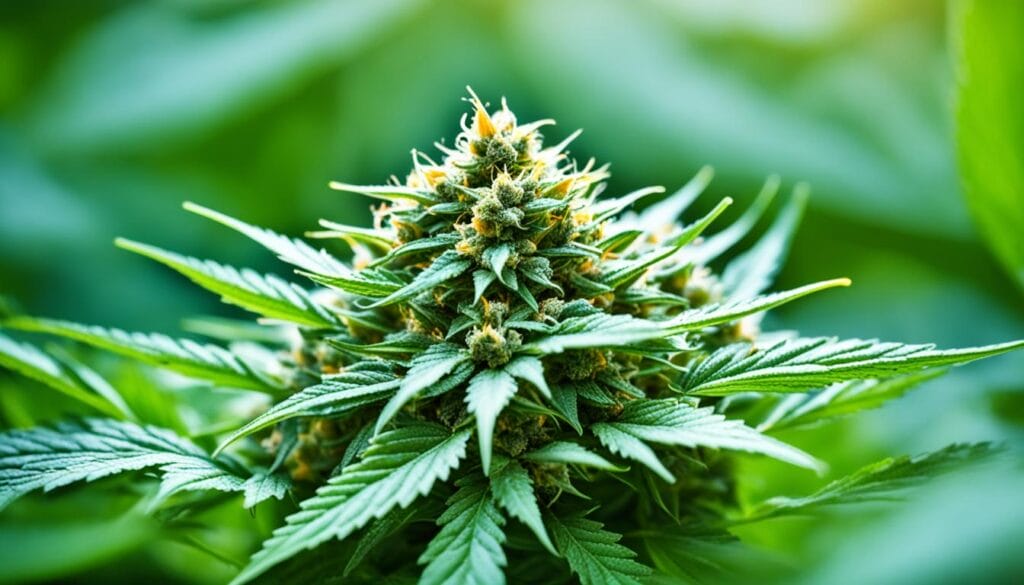
Choosing seeds wisely from licensed sources is smart. It looks at the whole life of the plant, from start to finish. Saving money on cheaper seeds may seem tempting, but experienced growers say high-quality seeds are a better investment. They lead to more success and less trouble over time. For both personal and commercial growers, thinking about seed quality and where they come from is a smart move in the ever-growing cannabis market.
Crossing State Lines: Legal Risks in Cannabis Seed Transportation
Moving cannabis seeds across state lines seems simple but is filled with legal risks. Federal laws are strict against all forms of marijuana, seeds included. People thinking about transporting them need to be very careful and know the laws fully.
Even though some states allow cannabis, not all do. This makes the law very complicated for travelers. It’s important to know about the legal problems with carrying cannabis seeds from one state to another:
- Federal Law Supersedes State Legislation: No matter a state’s view on cannabis, moving seeds over state lines is controlled by federal law. Since marijuana is still not allowed at this level, you could face legal action.
- Potential Prosecution: A trip with seeds can end badly. You might be prosecuted under federal law and face fines or jail.
- Contradiction and Enforcement: There’s a big mismatch, as seeds legal in one state might be illegal in another. Federal officers can still enforce federal laws, regardless of state laws.
Before moving cannabis seeds, do your homework on both state and federal laws. Making sure your actions are legal can help you avoid trouble. Talking to a lawyer who knows about cannabis laws could also help. They can offer advice and help you see all the risks involved.
“Always behave like a duck-keep calm and unruffled on the surface but paddle like the devil underneath.”
This advice is great for those dealing with cannabis seed transportation. Getting to know the laws well is key to avoiding running into legal issues when traveling across state lines.
International Cannabis Seed Markets and Federal Laws
The cannabis industry is growing worldwide, and international cannabis seed markets are thriving. This creates a complex situation of federal laws and rules. It’s important for enthusiasts and business people to understand the laws. This way, they can avoid confiscation risks and navigate international laws successfully.
Confiscation Risks When Importing Cannabis Seeds
Dealing with international seed markets can lead to customs issues, and confidentiality risks are real. Many countries have strict rules about cannabis seeds, especially if the seeds are considered controlled substances. Knowing each country’s rules can prevent your seeds from being taken.
Navigating International Cannabis Laws
Understanding international cannabis laws can be tough. It’s like going through a maze. You need to know the law well and plan your steps carefully. Here are tips for staying legal in the global cannabis seed trade:
- Research thoroughly the legal status of cannabis seeds in your country and the export nation.
- Stay updated with the changing tides of cannabis regulation, as laws can shift rapidly.
- Consult with legal experts specialized in international drug policies.
| Country | Legal Status of Cannabis Seeds | Permit Required for Seed Import? | Known Confiscation Instances |
|---|---|---|---|
| Canada | Legal with restrictions | Yes | Rare |
| Netherlands | Legal | No | Uncommon |
| United States | Varies by state | Depends on state law | Occasional |
| Australia | Illegal | N/A | Common |
The attraction to international cannabis seed markets is strong, despite the hurdles. Doing your homework and understanding federal laws and international rules can help. This way, you can join in confidently and reduce confiscation risks.
The Convenience and Risks of Buying Cannabis Seeds Online
The digital marketplace’s growth has made buying cannabis seeds online popular. The convenience of shopping from home attracts many. You can find a wide range of strains from online seed banks. They often offer detailed descriptions and growing advice.
Yet, shopping online has its risks. It’s important to know the laws about buying cannabis seeds, as they differ by place. The internet’s anonymity might lead you to unreliable sellers. Checking the online seed banks’ legal status and reputation is key to avoiding trouble and ensuring quality.
Doing your homework is critical when buying cannabis seeds online. Make sure to read customer reviews and check the seed bank’s credentials. It’s also smart to understand their policies on returns and shipping. Choosing secure payment options is vital for keeping your data safe.
- Research seed banks thoroughly to verify their reputation and review customer feedback.
- Understand the legality of cannabis seed purchase and possession in your jurisdiction.
- Assess the quality of seeds by looking into their genetics and the provider’s quality control measures.
- Look for clear communication around shipping, returns, and customer service.
Remember, a well-informed consumer will have a safer and more satisfying online shopping experience. Prioritizing research and vigilance when engaging with online seed banks can mitigate risks and ensure a valuable acquisition.
Buying cannabis seeds online is very convenient. Still, understanding the risks is key for a safe and happy deal with online seed banks. Enjoy gardening!
Cannabis Seeds: Trends in Legalization and Industry Movements
The landscape of cannabis seed regulation is changing quickly. Legalization trends are transforming the industry and bringing new legal reforms. These changes show how we view and manage cannabis seeds in the market today. This marks a big evolution in how we see agricultural goods.
DEA’s Acknowledgment of Cannabis Seeds as Legal Hemp
The Drug Enforcement Administration (DEA) made a big move for the cannabis industry. It recognized cannabis seeds as legal hemp if certain conditions are met. This important step by the DEA helps growers and consumers. It clears up confusion about the legal status of cannabis seeds. Now, there’s a smarter way to regulate cannabis products.
How State Regulatory Programs Influence the Market
State regulatory programs are crucial in shaping the cannabis seed market. They establish rules that control the production, distribution, and sale of cannabis seeds. These state laws can lead to big changes in the industry. They affect one state and can set examples for the whole country.
These state rules help businesses and growers follow the law and enter the market. They also ensure the cannabis seed market is stable and trustworthy.
Conclusion
Buying cannabis seeds involves understanding complex laws. These laws can be different in each state and between state and federal regulations. It’s key to know these laws to stay legal and meet your growing goals. This knowledge lets you explore the cannabis seed market smartly.
Buying seeds legally is a detailed task. You must know the laws in each state, how they affect buying seeds, and the rules on possessing and moving them. Crossing state lines or buying from abroad adds big risks. This means checking if online seed shops are legal is a must.
The cannabis industry is always changing. Because of this, staying up-to-date and careful is very important. Changes in the law offer both chances and challenges. But, with the right knowledge and planning, you can buy and grow cannabis seeds legally. By doing your homework and following the law, you can enjoy being part of the cannabis world safely.
FAQs
Is it legal to purchase cannabis seeds? A: The legality of purchasing cannabis seeds varies widely depending on your location. At the federal level in the United States, cannabis remains a Schedule I controlled substance. However, many states have legalized cannabis for medical or recreational use. It’s crucial to understand both your state and local laws before purchasing seeds.
Can I buy cannabis seeds from another country? A: Importing cannabis seeds from another country can be risky. While some countries like Canada and the Netherlands allow the sale and export of cannabis seeds, importing them into the U.S. could lead to confiscation and legal issues due to federal restrictions. Always research the laws in your country and the country you are importing from.
How do state laws differ from federal laws regarding cannabis seeds? A: State laws can significantly differ from federal laws. While some states have legalized cannabis, federal law still classifies it as illegal. This discrepancy can lead to complex legal challenges, especially when transporting seeds across state lines.
What should I know about state-specific cannabis cultivation laws? A: Each state has its own regulations concerning cannabis cultivation, including licensing requirements, the permitted number of plants, and specific security measures. Staying informed about your state’s laws is essential to avoid legal complications.
How does the 2018 Farm Bill affect the legality of cannabis seeds? A: The 2018 Farm Bill legalized hemp, defined as cannabis with less than 0.3% THC. This means that cannabis seeds with a THC content below this threshold are considered hemp and are legal. However, this distinction requires careful attention to THC levels.
What are the risks of transporting cannabis seeds across state lines? A: Transporting cannabis seeds across state lines can expose you to federal legal action, regardless of the laws in your origin and destination states. Federal law supersedes state law in these cases, and transporting cannabis seeds remains illegal under federal law.
Can I buy cannabis seeds online safely? A: While buying cannabis seeds online is convenient, it’s essential to research the legality in your area and the reputation of the seed bank. Ensure the seed bank complies with legal standards and offers secure payment methods. Reading reviews and verifying their credentials can help mitigate risks.
Are there alternative uses for cannabis seeds besides cultivation? A: Yes, cannabis seeds can also be used as bird food, fish bait, and nutritional supplements. These uses generally face fewer legal restrictions, but it’s still important to verify local regulations and purchase seeds intended for these purposes.
What are the commercial cultivation licensing requirements? A: Commercial cultivation of cannabis requires obtaining specific licenses, which involve detailed application processes, including background checks, financial records, security plans, and ongoing compliance with state and local regulations.
How do international laws affect the cannabis seed market? A: International laws on cannabis seeds vary widely. While some countries have legalized the sale and export of cannabis seeds, others have strict prohibitions. Navigating these laws requires thorough research and often legal consultation to avoid confiscation and other legal issues.
What are the trends in cannabis seed legalization and industry movements? A: The cannabis industry is rapidly evolving, with increasing legalization at both state and international levels. The DEA’s recognition of certain cannabis seeds as legal hemp under the 2018 Farm Bill and state regulatory programs are shaping the market, creating new opportunities and compliance challenges.
What should I consider when buying high-quality cannabis seeds? A: High-quality cannabis seeds usually cost more but offer better genetics, higher resistance to pests, and more consistent growth. Purchasing from licensed and reputable providers ensures you get reliable seeds, reducing the risk of crop failure and legal issues.
Suggested Articles
;)
;)
;)



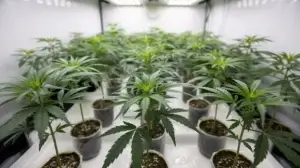
 18 Feb 2026
18 Feb 2026  6 min read
6 min read
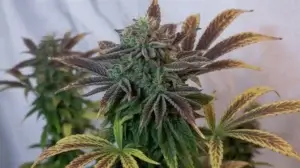

 June 05, 2024
June 05, 2024 


RESPONSES (0)
No responses yet. Be the first to respond!